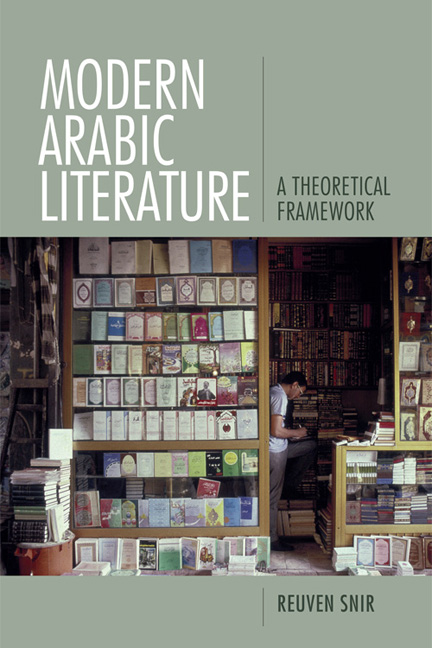Book contents
Introduction
Published online by Cambridge University Press: 03 January 2018
Summary
Without fear of exaggeration, one could say that the changes that Arabic literature has seen since the mid-nineteenth century are as momentous or even radical as the ways in which Arabic literature had been transformed following the rise of Islam in the seventh century. Since the mid-twentieth century, the writing and publishing of contemporary Arabic literature has taken flight all over the world, as has the concomitant increase in literary consumption by Arab and foreign reading publics. Modern Arabic literature has become such a huge field; the number of Arabic literary texts produced in recent decades is so enormous that they cannot be covered in any meaningful way by traditional scholarly studies. In fact, dealing with this output in its entirety is now a task well beyond the combined efforts of all scholars working in the field, let alone the efforts of only one of them. Also, there is our duty as students of this literature to constantly revise the way we approach our material, which has not only grown quantitatively, but qualitatively as well. Referring to the need to rewrite the literary history of the Arabic novel, Roger Allen, the most experienced contemporary scholar in the literary history of modern Arabic literature, proclaims―in the words of Oscar Wilde―that “the one duty that we owe to history is to rewrite it” and then adds the following:
I wish to challenge many of the premises and organizing principles that have governed research and publication that I have done previously, not so much in order to suggest that they were not relevant or even useful for their time, but rather that the changing nature of Arabic fiction―a primary facet of its very essence, of course―requires a continuingly [sic] changing perspective in order to reflect both the creativity of Arab littérateurs and the kind of studies now being devoted to it.
Given the recent expansion of Arabic literary texts and the need, as Allen argues, to change our perspective on their study, I would like to propose a shift in approach, that is, a new theoretical framework or model that would make possible the comprehensive study of the diverse and multifarious texts that make up modern Arabic literature.
- Type
- Chapter
- Information
- Modern Arabic LiteratureA Theoretical Framework, pp. 1 - 7Publisher: Edinburgh University PressPrint publication year: 2017



